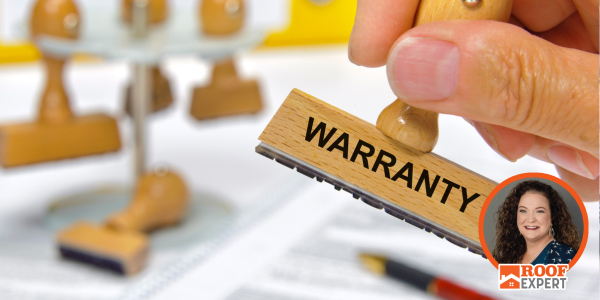Understanding different roofing warranties
September 29, 2025 at 6:00 a.m.AAR Expert John Kenney says roofing warranties offer essential peace of mind, but only if you understand what they cover and how to maintain them.
Investing in a new roof for a home or a commercial building is not just the materials and workmanship you’re buying. You’re also getting a warranty. However, not all warranties are created equal. Misunderstandings about what they cover are more common than most property owners realize. Navigating roofing warranties can be complicated, but a basic understanding will help you make better decisions, protect your investment and avoid the unexpected if something goes wrong.
There are many types of warranties to understand, but we will cover the most common: material warranties and workmanship warranties.
The key is understanding who is responsible for what and under what conditions those warranties remain valid.
Let’s start with the material warranty that comes from the roofing manufacturer. This warranty covers defects in the roofing materials, shingles, membranes, coatings, insulation, metal panels, etc. It guarantees that your purchased product will perform as promised under normal conditions. Material warranties don’t cover issues caused by improper installation, poor ventilation, weather damage or lack of maintenance. Many material warranties become void if the roof isn’t installed according to their guidelines or if system components are substituted or omitted. If a defect with the product causes premature failure, the manufacturer may repair or replace the product, but labor costs will not be covered.
Homeowners and building owners should know that these warranties often sound more generous than they are. A “30-year shingle warranty” doesn’t guarantee your roof will last 30 years; it means the shingle manufacturer may cover specific types of failures for up to 30 years, and even then, the coverage typically decreases over time. Many warranties are prorated, meaning you’ll receive only a portion of the replacement cost as the roof ages. Reading the fine print matters.
The workmanship warranty is a separate coverage offered by the roofing contractor and can also be provided by the manufacturer as a “labor and material warranty.” This warranty protects you against errors made during the installation process. Even the best materials will fail if they are not installed correctly. These warranties vary by contractor and manufacturer. Contractor workmanship warranties are commonly two years long. Manufacturer labor and material warranties can be twenty years or more. The length of the warranty isn’t the only factor to consider. The manufacturer's and contractor’s reputation and commitment to standing behind their work are just as important.
Workmanship issues might include improperly fastened shingles, poorly sealed flashing, uneven underlayment or gaps around roof penetrations. If these problems cause leaks or damage, a strong workmanship warranty should ensure they’re addressed at no cost. But again, the warranty is only as good as the contractor's. Hiring a licensed, insured and reputable roofing company with a record of honoring its word is critical.
One area where home and building owners often get confused is in warranty coverage overlaps. For example, if your roof leaks because of faulty flashing installation, the manufacturer won’t cover it because the materials weren’t defective. Some manufacturers offer enhanced or system warranties when certified contractors install their products, providing coverage under one agreement, offering broader protection and a single point of contact.
If you’re considering this type of extended warranty, ask questions like:
- Who performs the inspections?
- Are annual check-ups required to keep the warranty valid?
- What is the process for filing a claim?
- How long does it typically take to receive a resolution?
The more clarity you have, the more confidently you can move forward.
Understand that warranties are not insurance. They will not cover storm damage, fallen trees or other acts of nature. Regular maintenance is your responsibility. Most warranties require proof that the roof was maintained according to manufacturer guidelines. Neglecting to clean debris, inspect flashings or clear clogged drains can all void coverage.
Roofing warranties offer essential peace of mind, but only if you understand what they cover and how to maintain them. Knowing the difference between material warranties and workmanship warranties and how they work together puts you in a stronger position to protect your property and budget. Choose your roofing partners carefully, read your warranty documents closely and keep up with regular inspections. In roofing, as in life, protection is only as good as the preparation behind it.
John Kenney is the CEO of Cotney Consulting Group. Read his full bio here.














Comments
Leave a Reply
Have an account? Login to leave a comment!
Sign In